10 March 2024, Kobe, Hyogo – APN, in collaboration with the Graduate School of Disaster Resilience and Governance, University of Hyogo, held the “Climate Change × Disaster Reduction Forum.” The forum was held at the International Conference Room on the ninth floor of the International Health Development Center, Kobe City, Japan and streamed online via Zoom, with simultaneous Japanese and English interpretation. Approximately 110 people from Japan and abroad attended (30 participants in person and 80 participants online) the forum.
Recently, weather-related disasters beyond expectations have occurred around the world. Climate change has already become a climate crisis. The theme of “Climate Change × Disaster Reduction” gave prefectural citizens an opportunity to think about global climate change as an impending problem that demands their proactive engagement. The theme encouraged a sense of ownership among the citizens and a greater sense of responsibility toward mitigating the impacts of climate change.
Dr Linda Anne Stevenson, Program Director of the APN Secretariat, delivered the opening remarks. Dr Stevenson mentioned the joint message from the Cabinet Office and the Ministry of the Environment, which indicated that climate change countermeasures and disaster prevention and mitigation measures should be effectively coordinated. She stated that we are now required to consider how to recover from the next disaster in a resilient manner while promoting international efforts through the coordination and cooperation of all entities based on the experiences of various disasters, including the Great Hanshin-Awaji Earthquake, which will mark its 30th anniversary next year, and the principles of the SDGs.
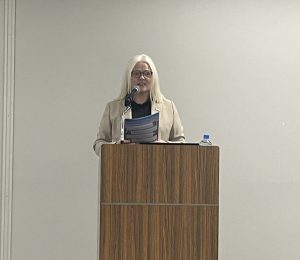
In the first part of the forum, Assoc Prof Hiroshi Taniguchi, Graduate School of Disaster Resilience and Governance, University of Hyogo, gave a keynote speech titled “Weather-related disasters caused by climate change and their impact on our environment.” Assoc Prof Taniguchi explained the difference between weather and climate, the mechanism of global warming, and the effects of global warming in an easy-to-understand manner.
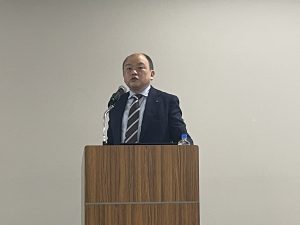
In the second part, Prof Michiko Banba, Graduate School of Disaster Resilience and Governance, University of Hyogo, was invited as a facilitator to introduce overseas case studies.
First, Dr Suvdantsetseg Balt, Head of Administration Planning and International Cooperation Department at the Mongolian Academy of Sciences, gave a presentation titled “Climate change impact and adaptation options of nomadic pastoral systems in Mongolia” regarding the drought case in Mongolia.
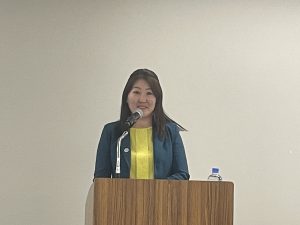
Prof. Andreas Neef, Professor at the University of Auckland, New Zealand, gave a presentation titled “From sea-level rise to floods and cyclones: Challenges of multi-hazard risk environments in Fiji and Samoa” on the case of flooding in Fiji and Samoa.
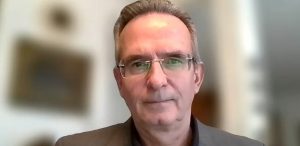
Afterwards, there was a Q&A session and a lively discussion took place. Participants asked various questions, such as “Is the current climate change irreversible or is there still more we can do to prevent it?” and “Is Education for Sustainable Development available for the next generation in Mongolia and New Zealand?”
Lastly, Prof Banba made the closing remarks, indicating that it is difficult to understand global climate change, but the three lecturers explained the mechanisms of global warming, its effects on vulnerable people, and the current situation that makes it difficult for us to even live there, in a way that was very easy to understand. Prof Banba hoped that the forum would allow us to think about the issue as something closer to ourselves as global citizens.
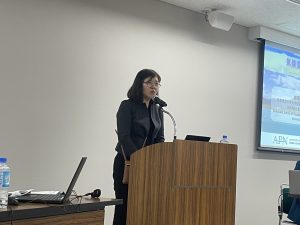
In a survey conducted after the forum, 100% of the respondents found the forum was a positive experience, with the answers “very good” (58%) and “good” (42%), indicating that the forum was very well received. Also, the secretariat received a comment, “The combination of keynote speeches and case study reports, explaining global warming, its effects, and countermeasures, made it very easy to understand and meaningful.”
APN will continue to work with Hyogo Prefecture, related organisations and research institutions to deepen awareness of environmental issues among prefectural residents.
Please click here to see the programme.
The recording of the event is available below:

